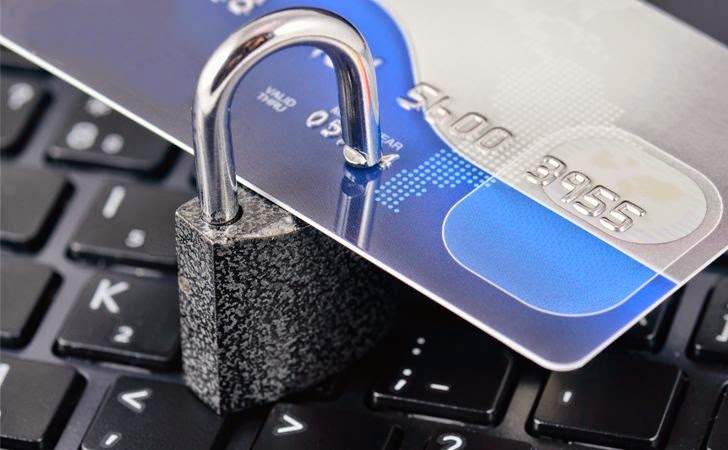 Internal Revenue Service, Experian and even Mark Zuckerberg faced cyber security threats in 2015.
Internal Revenue Service, Experian and even Mark Zuckerberg faced cyber security threats in 2015.
According to ITRC Data Breach Reports – 2015 Year-End Totals, at least 169 million personal records were exposed in 2015.
The problem of cyber security is worsening every single day. Credit card information, account identity, passwords, why even wire transfer protocols are being breached by hackers causing millions in losses.
eCommerce where financial transactions are entirely transacted with the help of Internet, the menacing problem of website security is even grave. Data leaks and theft of sensitive information belonging to customers can cause serious losses for both sellers and buyers.
The larger responsibility of protecting the customers from cyberattacks and providing them a safe environment to carry out shopping is upon eCommerce stores.
Check out these trustworthy ways that top eCommerce websites are deploying to protect their customers and sellers from hacking and frauds:
1. Choose a secured eCommerce platform
There are plenty of open source eCommerce platforms like Magento, Drupal, WooCommerce, BigCommerce, PrestaShop, etc. Not all of them provide the same level of security and integrity for data stored in the server.
Sometimes the platforms have to be integrated with additional plugins to heighten website security. In other words, the first step towards ensuring website safety for your online store is by making a wise choice of an eCommerce platform.
Here are some basic website security measures that an online store must put in place:
- Basic Firewall Protection
- HTTP Intrusion Protection
- SSL certificates
- Web Server & PHP Hardening
- Daily Security Audits
2. Flush your database of old records
Even though PCI Standards prohibit storing of sensitive information onboard cloud and physical servers, there are stores which store records like customer details, credit card numbers, expiration dates, etc. These records can be easily targeted and broken through backdoor hacking techniques.
A wise move will be to flush the servers of old records and maintain only minimal data that will support routine transactions and processes. The maximum data an online store will have to store on its databases will be customers to whom refunds are due or chargebacks are pending.
3. Set up strong password mechanisms
This might appear to be a no-brainer. But, the truth is there are online stores where users can open accounts with weak passwords that can be easily guessed and hacked into. An online store that really wants to protect its customers and their information will put down a strong password mechanism.
A strong password mechanism will require the customers:
- To set passwords that are case-sensitive
- Contain a combination of numerals and symbols
- Includes special characters
- Request the user to change the passwords periodically
- Establish strong and fail-proof passwords retrieval and reset procedures
- Prevent them from using easily detectable passwords like date of birth, nickname, short passwords, numbers, etc.
4. Set up a regular cycle of security audits
Security audits with predefined checks will help maintain the data integrity of your online store. It will also help track dormant attackers who have already gained access to the network or the servers.
Microsoft Advanced Threat Analytics reports calculated 200 to be the average number of days’ attackers stay dormant within a network before suspicious activity is triggered.
Hence, it is recommended to set up a website security audit every 180 days or as convenient to track, report and eliminate suspicious activity.
Here are some checks that can be included as part of the eCommerce website security audit process:
- Identify wireless networks and ascertain their security worthiness
- Change admin passwords, user account master data passwords and other critical entry points
- Install the latest patch of software patch for web servers and eCommerce platform
- Purge old and redundant data in servers. Critical data like user account information, credit card information, etc. should be backed up to offline servers
- Check for previous report action plans and their implementation in the current cycle
5. Set up SSL certificates
SSL (Socket Security Layer) Certificates beef up your website security by notches. They add several layers to the website which hackers will not be able to hack into easily using conventional password stealing tactics.
SSL certificates also provide an array of other benefits that help your store reach audience to sell more.
- Pages with SSL certificates and data encryption get a higher search engine ranking in Google
- Almost every popular browser is migrating to HTTPS as the standard. HTTP is on its way out.
- Upcoming versions of web technology will require SSL certificates as the basic standard
- Moreover, at least 18% of customers will feel more safe to shop from eCommerce stores with SSL certificates.
As for setting up SSL encryption for your online store, there are number of SSL certificate providers like Symantec, GeoTrust, Digicert, Comodo, Network Solutions, SSL2BUY etc.
| 5 Reasons why Symantec must be your primary SSL Certificate provider
Formerly known as Verisign, Symantec is one of the most reliable SSL certificate providers in the industry today. The brand is noted for its fortified security that keeps at bay all sorts of Internet hacking and fraud attempts. The Norton Secured Trust mark is another reason why Symantec enjoys wide recognition as a trustworthy SSL Certificate provider. 1. Symantec deploys an impregnable encryption technology The Elliptical Curve Cryptography (ECC) encryption technology used by Symantec towers above the industry standards of CA/B. moreover, ECC consumes far less memory compared to other alternatives in the market. 2. Cross-platform offering Symantec SSL certificates encompass all ranges of requirements for single domains, multiple domains, sign ins or SSL for Microsoft Exchange. 3. Quick to Market The team at Symantec is swift at processing SSL certificates. The verification and allotment process takes minimal time giving online stores the benefit of market readiness. 4. All-time tech support If anything is to go wrong on any day at any hour, Symantec can get your store back on track. It is embedded with multiple forms of support channels including phone, chat, email, social media and even offline support channels. 5. Excellent browser compatibility Unlike other SSL certificate providers who drive users crazy with popups security alerts, browser incompatibility issues and quick expiration, Symantec is an all browser compatible SSL certificate. It delivers a neat and elegant UX that cuts away unnecessary alerts and popups. |
That brings us to a close of how to protect your eCommerce website, customers and sellers from online attacks, phishing and snooping. Do not forget about setting up SSL encryption for your store. Symantec SSL certificate is the best option you can wager on for unbeatable security for your eCommerce store.
